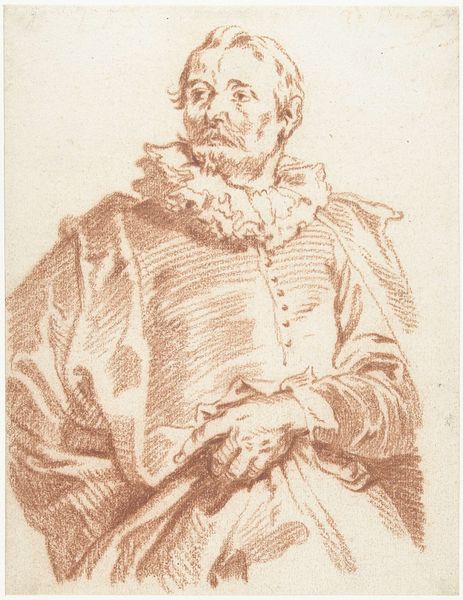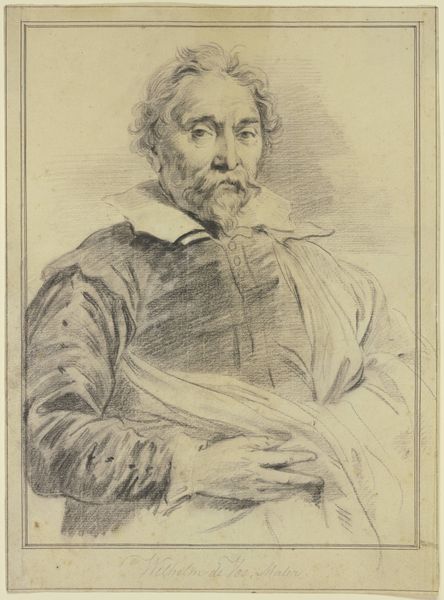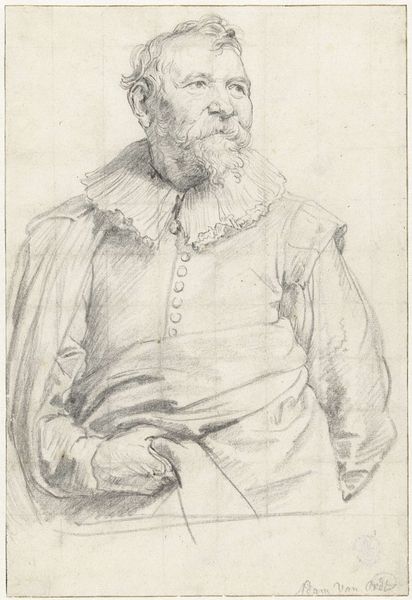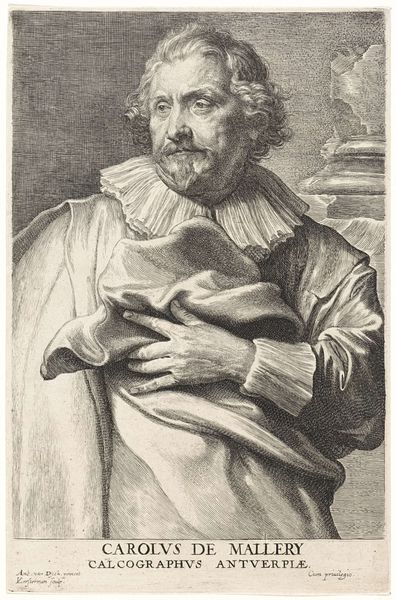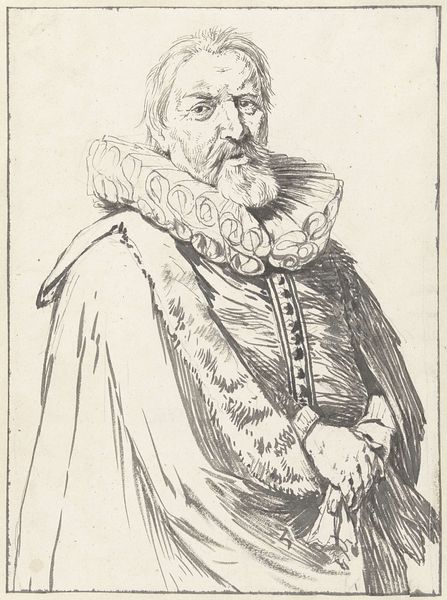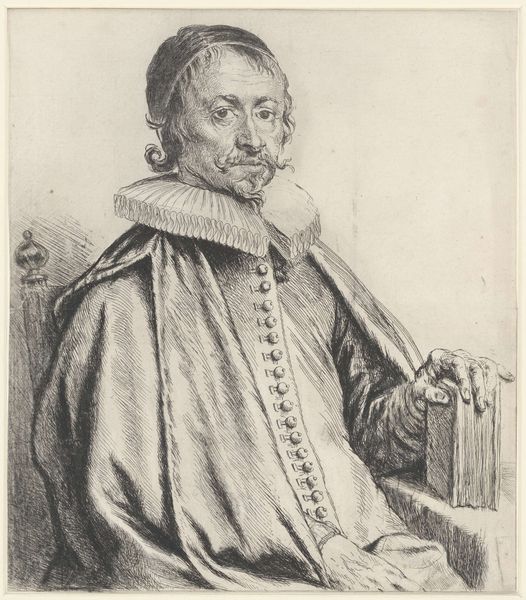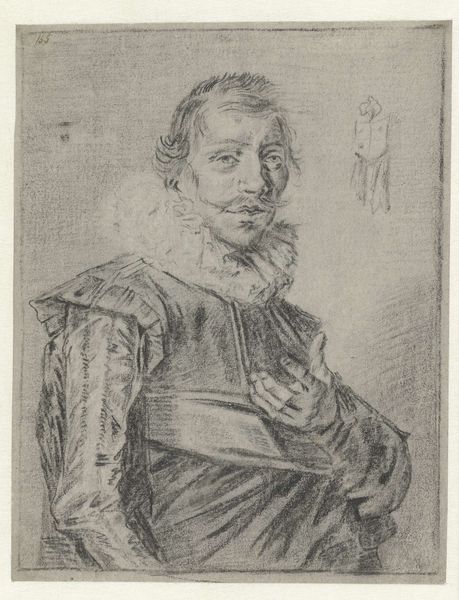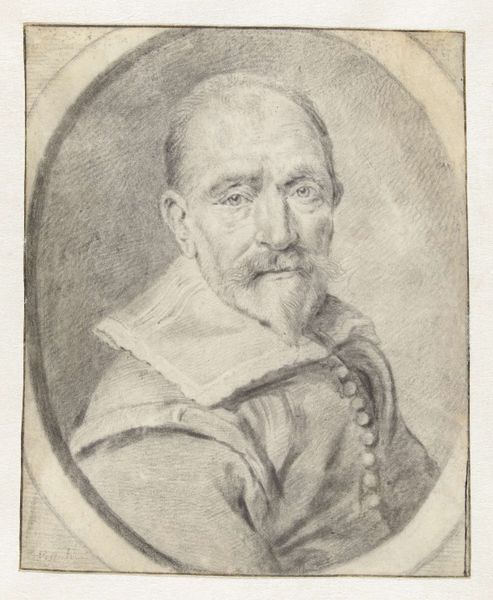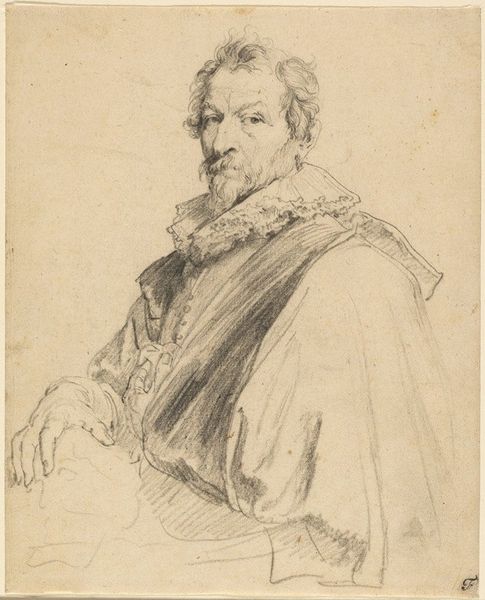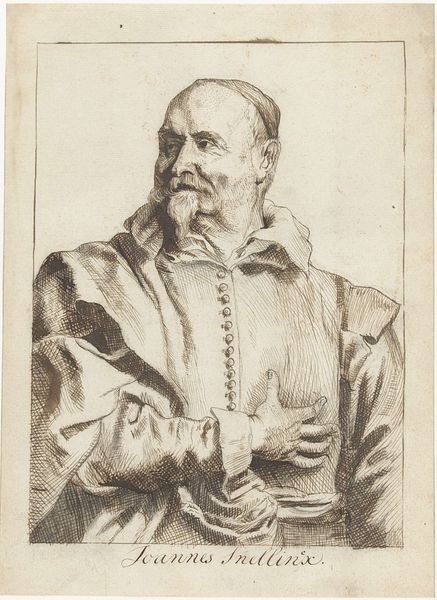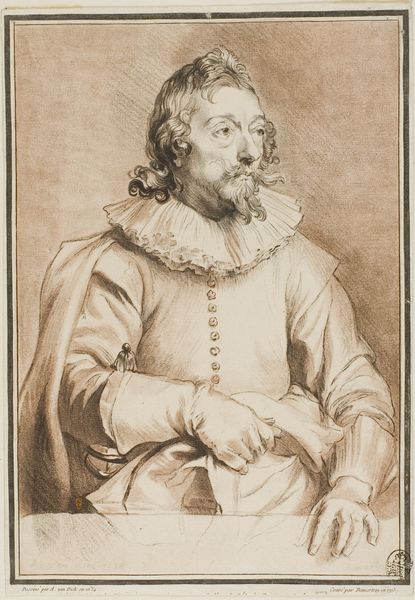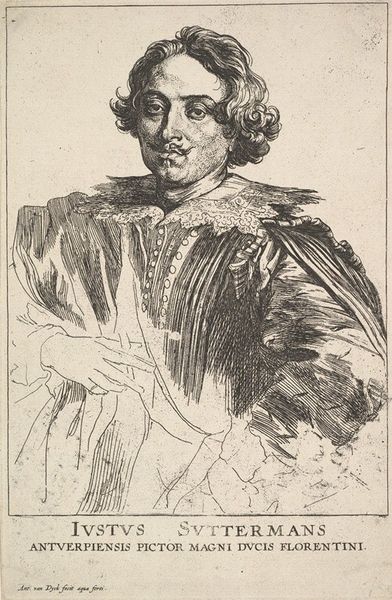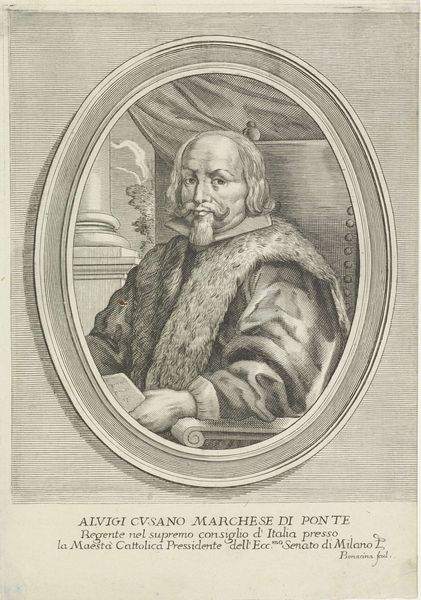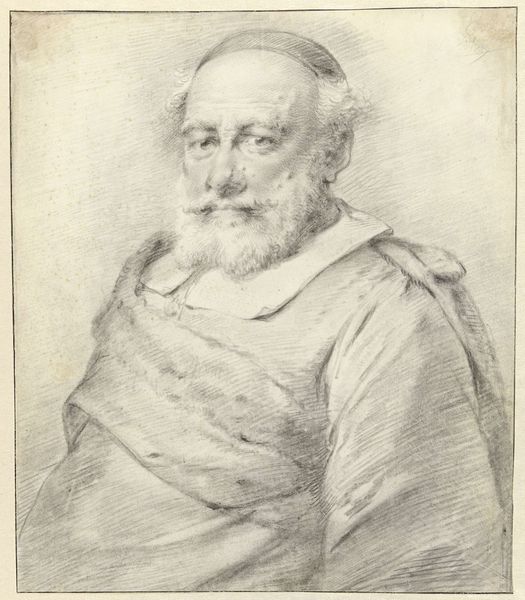
drawing, pencil
#
portrait
#
pencil drawn
#
drawing
#
baroque
#
pencil sketch
#
figuration
#
pencil drawing
#
pencil
#
portrait drawing
Dimensions: height 251 mm, width 191 mm
Copyright: Rijks Museum: Open Domain
Editor: This is "Portrait of Willem de Vos," a pencil drawing done sometime between 1627 and 1635 by Anthony van Dyck. It has an unfinished quality that’s actually quite appealing. What jumps out at you when you look at it? Curator: Immediately, the gaze holds my attention. It’s direct, yet tinged with a weariness that speaks to a life lived. Consider, too, the softness of the rendering. The lines are delicate, almost hesitant. It’s less about presenting the man’s outer strength and more about capturing something of his inner state. Do you notice how the unfinished background grid subtly suggests a mind still actively at work, constantly structuring and restructuring reality? Editor: That’s interesting! I hadn't picked up on that feeling of weariness, but I see what you mean. And the grid… It almost feels like the world is still being sketched out around him. Is that grid a common symbolic element in portraits of this period? Curator: Not necessarily common, but van Dyck often used preparatory sketches like this to capture the sitter’s likeness and spirit before committing to a full painting. The grid could symbolize the intellectual framework of the sitter – perhaps De Vos was a scholar or someone involved in mapping or measurement? These were times when such fields held immense social significance, their symbols silently but powerfully conveying meaning. Editor: So the symbols and the imagery work together to give insight into the culture as well as the person being represented? Curator: Exactly. Visual culture reflects psychological frameworks. By observing the motifs and structures of portraits like these, we observe historical modes of thought itself! Editor: That’s a great way to look at art, thank you. Curator: A pleasure. Looking closely helps these cultural stories whisper their secrets!
Comments
No comments
Be the first to comment and join the conversation on the ultimate creative platform.
